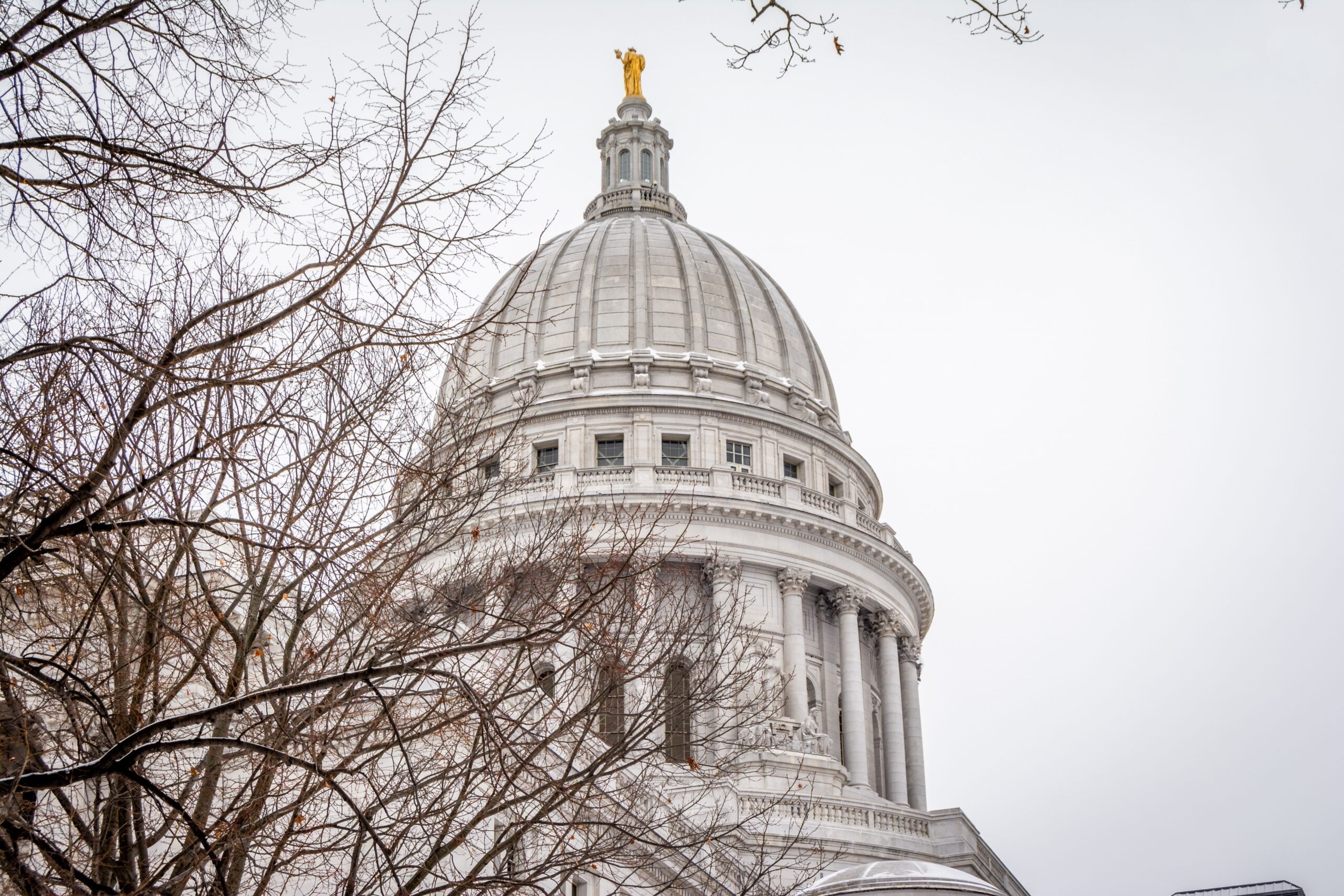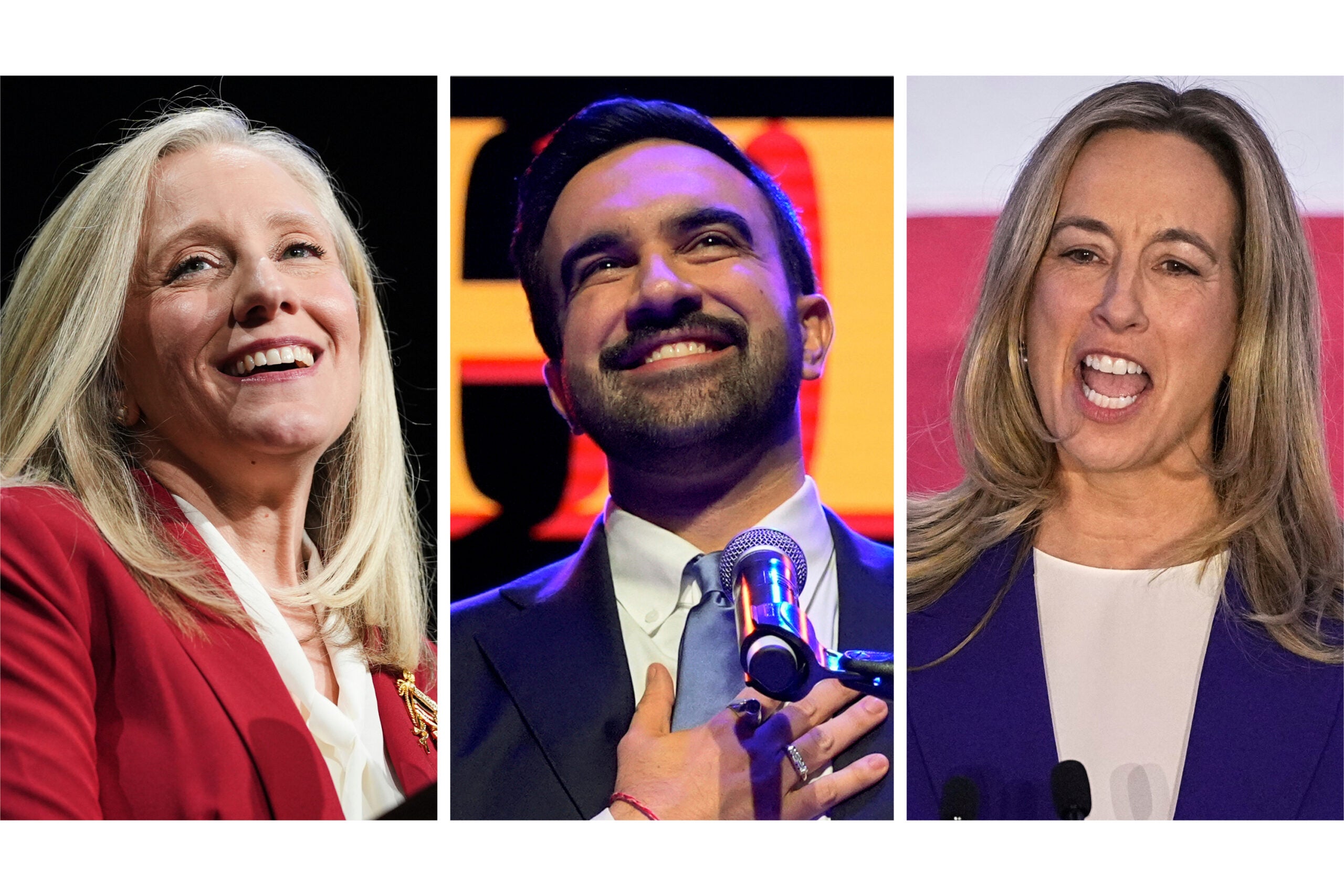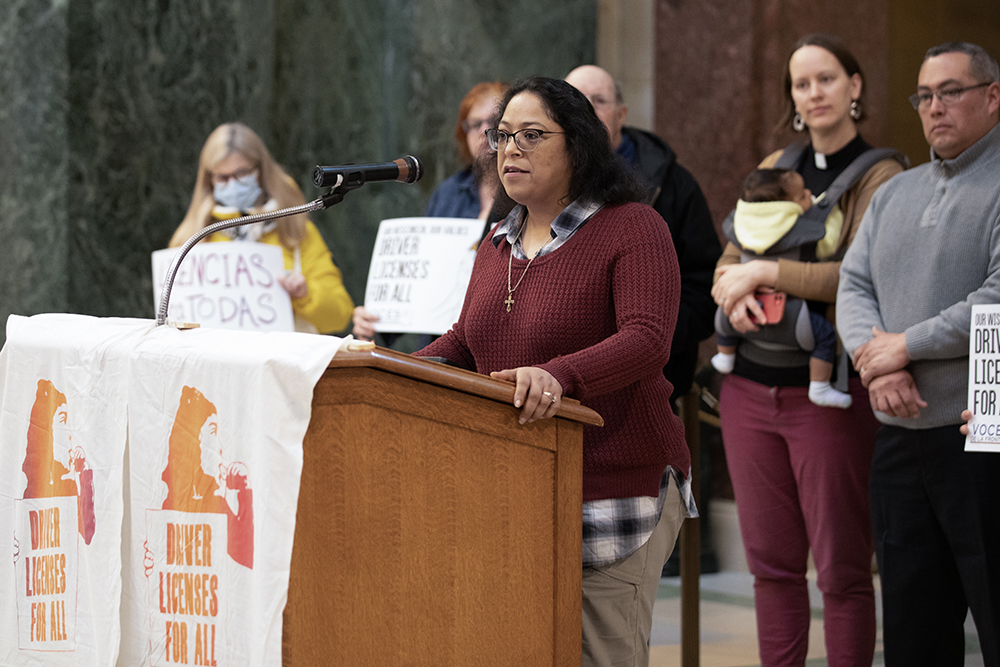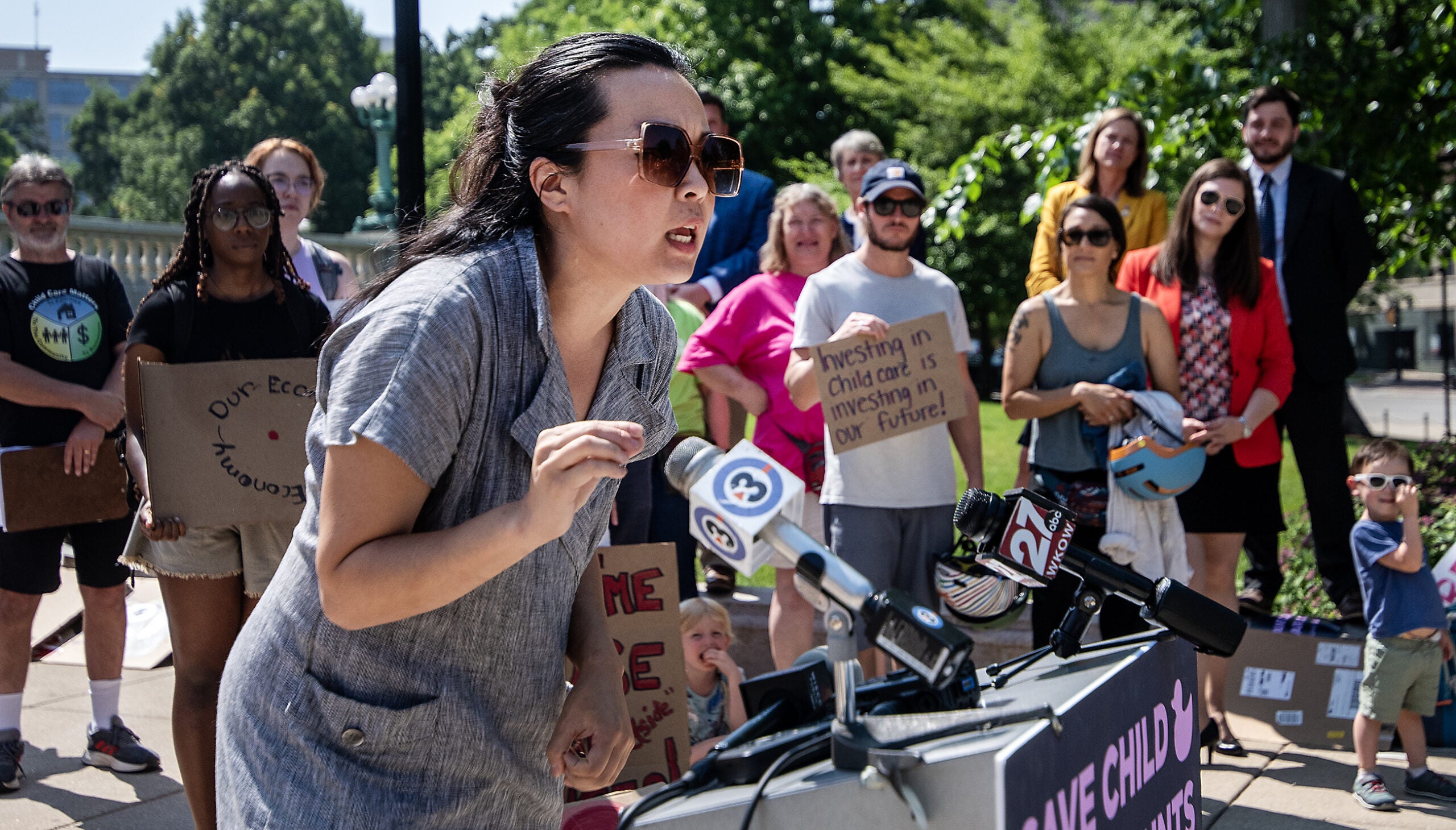There was a time when socialism helped build Milwaukee — literally. Socialist politicians found ways to fund its parks and public universities, not to mention the sewers that lay beneath the city’s paved streets. They raised Milwaukee’s minimum wage and helped shape workers’ compensation laws. Their influence rippled out to Madison and Washington D.C.
It’s been decades since the glory days of socialism in Milwaukee, but if two new state legislators from the city have their way, the legacy of the “sewer socialists” may see a revival.
On the day they were sworn into the Assembly earlier this month, state Reps. Darrin Madison and Ryan Clancy formed a socialist caucus — the first to reach the state Legislature in more than 90 years. They say they intend to take up the mantle of their Milwaukee forebears, focused on pragmatic, quality-of-life issues like infrastructure, housing and paid family leave.
News with a little more humanity
WPR’s “Wisconsin Today” newsletter keeps you connected to the state you love without feeling overwhelmed. No paywall. No agenda. No corporate filter.
“It’s sometimes really unsexy policy, but these are the really pragmatic things that make people’s lives better,” Clancy told Wisconsin Public Radio.
Clancy and Madison are — officially — Democrats, and say they expect to align with their fellow Democrats on many issues.
“But for sometimes slightly different reasons,” Clancy said.
“There’s a lot the traditions that align with the values led by some of the socialist mayors … that we will love to carry on,” Madison added. “Defending working class folks, ensuring that there’s strong public infrastructure, and then also ensuring that we’re accountable to the working class, not private industries.”
The socialist lawmakers are motivated by what Clancy describes as “harm reduction to capitalism.” So while many Democrats may vote together to support a paid parental leave law, Clancy said, he and Madison are animated by the idea that “those things are only necessary because capitalism is terrible.”
The caucus “creates a space for us to have a deeper analysis of legislation from the perspective of working-class folks as well as other stakeholders throughout our community, as opposed to following the uniform values of the broader caucus, or other special interest groups,” Madison told WPR.
Another similarity they share with the Democratic caucus: little chance of achieving much of their policy agenda. The GOP has strong majorities in the Legislature, meaning many Democrats’ policies are nonstarters — and that’s before you introduce the S-word.
For Republicans — many of whom have been warning of the dangers of socialism since before it was popular — the arrival of Clancy and Madison in the Legislature is cause for alarm.
“Democrats who believe a socialist agenda aligns with the values of Wisconsin voters are dangerous and out of touch — yet they’re becoming increasingly mainstream in their Party,” Wisconsin GOP spokesperson Rachel Reisner said in a written statement.
But Madison and Clancy are hopeful that the arrival of socialists in the state Legislature for the first time since 1931 speaks to a shift in where voters see potential solutions. They benefit from a boom in membership in the Democratic Socialists of America, a national organizing group with chapters across the country. That organization enjoyed a significant boost in the wake of the Bernie Sanders presidential campaign of 2016, and Madison and Clancy were both endorsed by, and received organizing support from, the Milwaukee DSA chapter, which was revived that year.
“People are really looking at the role of government and trying to understand why, in some cases, their basic needs are not being met,” said Clancy. “That’s what socialist policy can do.”
In Milwaukee, socialist government spanned three mayors and six decades
Socialism enjoyed a period of robust popularity in Wisconsin, centered primarily in Milwaukee, for more than 60 years. For decades, Milwaukee had three socialist mayors and a largely socialist city and county government. The city also sent a socialist to the U.S. House of Representatives, and Milwaukee Mayor Emil Seidel was Eugene Debs’ running mate in his Socialist Party bid for the presidency in 1912.
Milwaukee socialists were elected for two reasons: to fight corruption in city government; and in response to industrial conditions there, said Jonathan Kasparek, a professor of history at University of Wisconsin-Milwaukee’s Waukesha campus, who has written extensively about Wisconsin and Midwestern history.
“As working-class people began to feel the cost of industrialization and industrial labor, the Socialists were the ones that really stood up and spoke for them,” Kasparek said.
Policy created by socialists and their progressive allies shaped Milwaukee in ways that are still visible today. They helped establish the city’s park system and two public institutions of higher education. The movement’s acolytes were given the nickname “sewer socialists” for their focus on quality-of-life issues like water treatment, workplace safety and green space.
“They were derisively nicknamed ‘sewer socialists,’ because they didn’t want to argue in favor of revolution or overthrowing the government. They wanted the city to look good. They wanted it to be healthy,” said Kasparek.
Statewide, these politicians helped craft the state’s workers’ compensation and unemployment insurance programs, and are credited with helping to bring about the eight-hour workday and abolish child labor.
Today’s democratic socialism is a descendant of the constituent-oriented politics of that time, said Kasparek. Democratic Socialists of America saw its nationwide membership double during Sanders’ first national campaign, and it now has some 90,000 members.
Meanwhile, about 100 DSA-backed candidates won state and local races across the country in 2022, and DSA lawmakers sit in at least 20 state legislatures, according to a review of election results by WPR.
A focus on pragmatism, not revolution
Clancy and Madison say they are focused on bread-and-butter issues like their Milwaukee predecessors. Specifically, Clancy described wanting to expand a Milwaukee program that guarantees lawyers to people facing eviction, and Madison described looking to support young people in the youth justice system, foster care, or otherwise neither in school nor in the workforce.
But the two lawmakers say they differ from their predecessors when it comes to race consciousness. The heyday of Wisconsin’s Socialist Party was prior to the post-war boom in the Black community of Milwaukee. But today, Madison is the first Black elected socialist in the state.
“Where we differ (from previous generations) is a commitment to fighting for marginalized communities,” Madison said. “With that context, there’s a niche commitment to defending marginalized folks and uplifting those values here, in this space.”
Assembly Speaker Robin Vos, R-Rochester declined to comment on the caucus’ formation, but Clancy and Madison have not gone unnoticed by Republicans. The state Republican Party sent out a fundraising email to its supporters decrying the caucus as a “race to the left.”
Assembly Majority Leader Tyler August, R-Lake Geneva, said in a written statement that the formation of the socialist caucus proves Wisconsin Democrats are “out of touch.”
“Socialism has failed everywhere in the world that it has been tried,” August said. “Capitalism and free markets are the foundation of our great country and Republicans will do all we can to fight and defeat socialism.”
Historically, Wisconsin socialists were pragmatists, not revolutionaries, said Kasparek, the historian.
“Being a Democratic socialist isn’t sort of the classic stereotype of the bomb-throwing anarchist revolutionary, but they’re people who actually want to put forward a political platform and enact policies that are going to benefit working class people,” he said.
That’s why Madison and Clancy think they won’t be a caucus of two for long.
“I know that there is a pathway forward for this, because I think increasingly, folks are looking at people not having their basic needs met and seeing they’re not just slipping through the cracks — this system has cracks designed into it,” Clancy said. “And I think that is why socialism is becoming more popular again.”
Wisconsin Public Radio, © Copyright 2025, Board of Regents of the University of Wisconsin System and Wisconsin Educational Communications Board.







